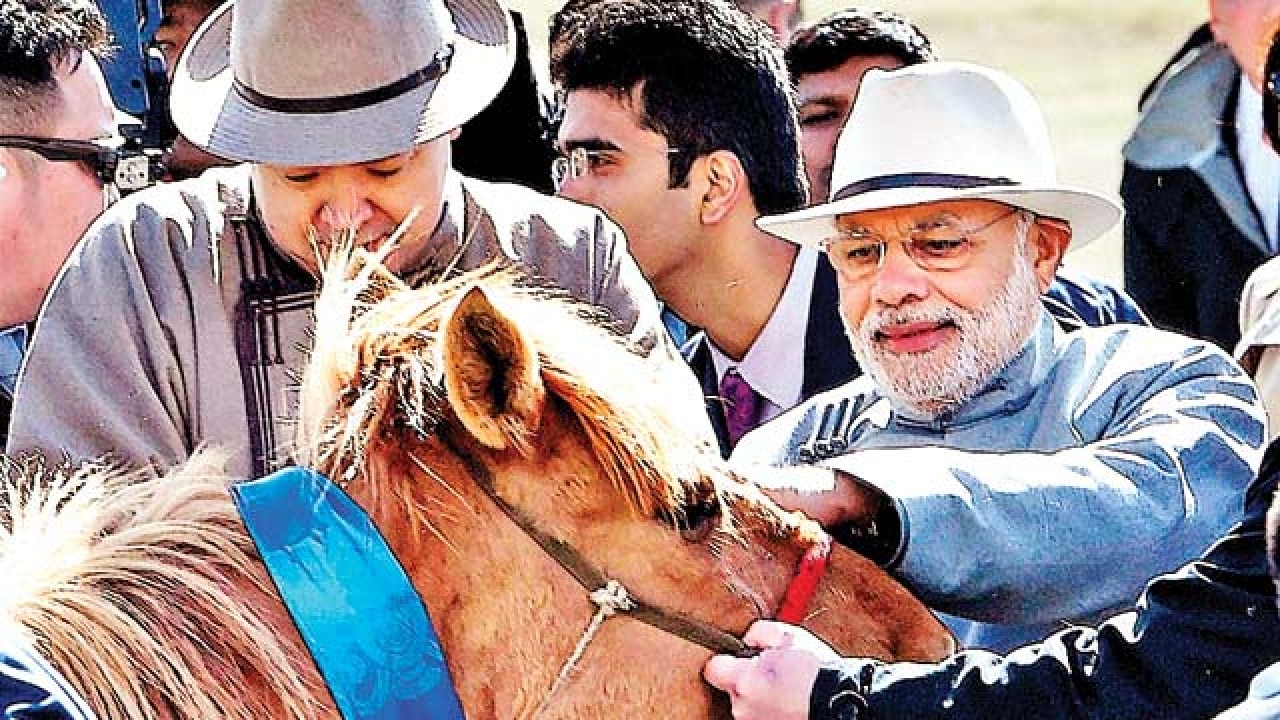
In Ulaanbaatar, in July last, the question Mongolian ministers, diplomats and editors kept asking me was: when will India start releasing the promised one billion dollars to Mongolia?
The reference was to the $ 1billion credit line pledged by Prime Minister Narendra Modi when he visited Mongolia in May 2015. Announcing this amount, Modi told the country’s leaders that India would extend support in diverse fields and increase exports to Mongolia.
I asked them why Mongolia needed this line of credit promised for exports when Mongolia was pampered by China and Russia; the two powers were competing with each other to woo the country and its people with a variety of carrots.
All that has changed, said a senior official. Sandwiched between Russia and China, until recently, Mongolia could count on one to help if the other was not forthcoming on a particular issue or project. It could always approach Beijing when turned down on anything by Moscow, and vice versa. “That is no more the case. We are now caught in a pincer,” said a diplomat. Russia and China have joined hands. Ulaanbaatar can no longer expect Moscow to help when Beijing is uncooperative. With a GDP of around $35billion, Mongolia can hardly stand up to the pressures of either.
Modi’s billion-dollar pledge was a boost to Mongolians, who felt that “a new power” would help them stand up to China. During the visit, both sides recalled their civilisational ties rooted in (Tibetan) Buddhism. Indian support, they felt, could be a critical bargaining chip at a time when the benefits flowing from Russia and China were no longer as generous as in the past. Modi’s visit gave rise to expectations—palpable even in July 2016—of economic as well as geopolitical gains.
For New Delhi, it was a successful sortie into “China’s backyard”. Modi trying his hand at a bow and arrow in Ulaanbaatar was symbolism replete with signals to Beijing. This was also read as a response to Chinese ‘presence’ in Sri Lanka, which is India’s “zone of influence”.
In November, New Delhi made its next move: encouraged the Dalai Lama’s four-day visit to Mongolia, where, as a revered figure, his photo is displayed prominently in many monasteries. He has been there on eight occasions earlier. However, his ninth visit raised Chinese hackles. To host the Tibetan spiritual leader—accused by China of “splittist” activities for alienating Tibet from the People’s Republic—Ulaanbaatar defied Beijing’s objections.
China struck back swiftly with what amounts to sanctions. It turned off the financial tap for Mongolia’s economy and trade, and moving cargo into China entails a penalty of 10 yuan per truck besides an arbitrary levy on goods.
Mongolians are hit hard by the force of Chinese hostility and its sweeping economic effects. Russia is too engaged with China to be of help. Inevitably, in its hour of crisis, Mongolia looks to India for support.
Mongolian Ambassador Gonchig Ganbold met Ministry of External Affairs (MEA) officials. Beyond the spokesperson’s assurance to implement the credit line of $1billion, there is no clarity on what kind of support can be
extended.
In his plea, the envoy said: “It’s important that India raises its voice against the unilateral measures China is taking against us which is hurting our people, especially when severe winter is upon us.” Silence, he said, could be construed as giving China a “pass” for its behaviour.”
Hence, the billion-dollar question: can India go to the aid of Mongolia?
That calls for a show of the muscle Modi had displayed to much applause in Ulaanbaatar in May 2015. It means wading into the dispute. It also means giving offence to China—which Modi has never hesitated to do when required, as borne out again during the Indonesian president’s visit. Will he, won’t he? Mongolia is desperate to know. It is an important test.
The author, an independent political and foreign affairs commentator based in New Delhi has worked in China and had travelled to Mongolia for the Asia-Europe Editors Round Table.